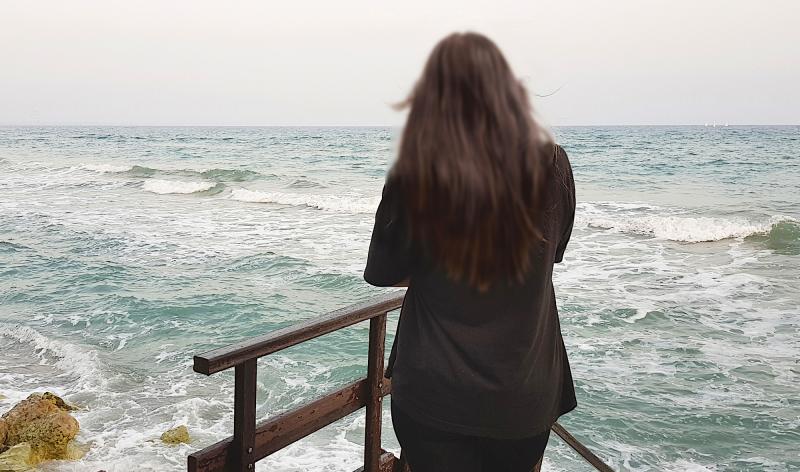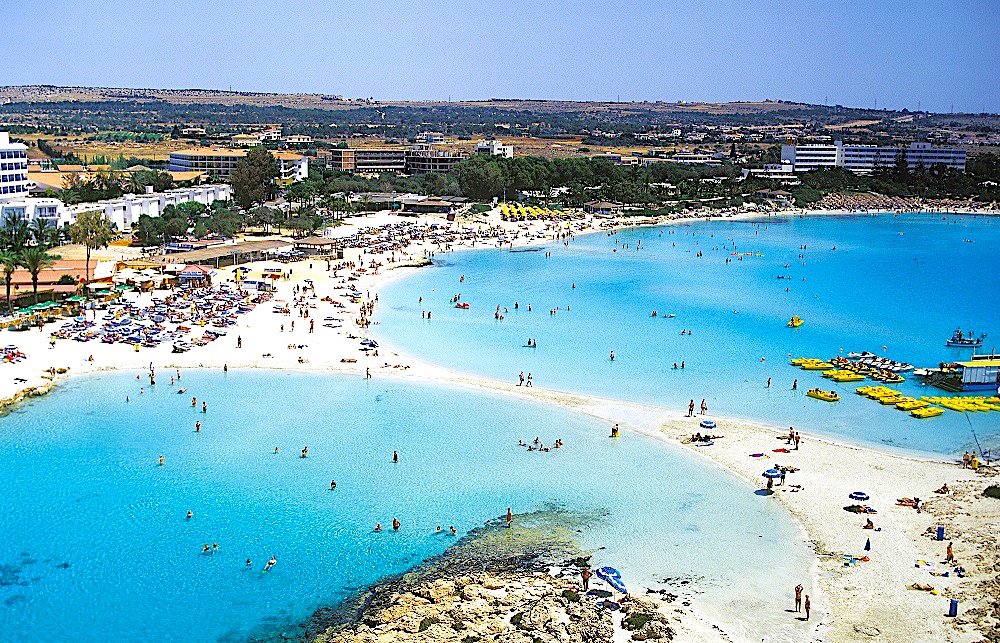Believe Me: The Cyprus Rape Case, ITV review - British teenager’s holiday from hell | reviews, news & interviews
Believe Me: The Cyprus Rape Case, ITV review - British teenager’s holiday from hell
Believe Me: The Cyprus Rape Case, ITV review - British teenager’s holiday from hell
Alarming accounts of the behaviour of the Cypriot police and judiciary

The case of the British teenager allegedly raped by a group of young Israeli men in Ayia Napa in Cyprus last year, only to find herself convicted of “public mischief”, has built up a head of steam in the international press and has provoked outrage among women’s movements and rights campaigners.
This ITV investigation, presented by a concerned-looking Julie Etchingham, did a thorough job of laying out the known facts, sifting through the legal arguments and winkling out significant details of how the local police conducted the investigation. There’s no doubt that “Emily” – real name withheld – had consensual sex with a man called Sam, but did not (by her account) invite 11 of his friends to join in. Eyewitness accounts, Emily’s traumatised state, DNA evidence and the injuries on her body suggested strongly that she was telling the truth. However, the police did somersaults to make her look like a liar, while Judge Papathanasiou pre-empted the verdict by announcing that he wasn’t hearing a rape case, conveniently excluding vital evidence (pictured below, Ayia Napa).
 Emily’s treatment was more like the kind of thing doled out to suspected spies by totalitarian regimes in the days of the good old Iron Curtain. Her police interrogations weren’t recorded or videotaped, and she wasn’t allowed an interpreter or a solicitor. Emily’s British friends claimed their statements were altered to make Emily look more culpable. After a six-hour interrogation, Emily agreed to sign a statement “confessing” that she’d lied – this, she said, was written for her by a police sergeant. Once the case came to court, the judge accepted the state pathologist’s submission that Emily’s injuries weren’t consistent with rape, while ruling out a forensic scientist’s evidence that au contraire, they were wholly consistent with rape.
Emily’s treatment was more like the kind of thing doled out to suspected spies by totalitarian regimes in the days of the good old Iron Curtain. Her police interrogations weren’t recorded or videotaped, and she wasn’t allowed an interpreter or a solicitor. Emily’s British friends claimed their statements were altered to make Emily look more culpable. After a six-hour interrogation, Emily agreed to sign a statement “confessing” that she’d lied – this, she said, was written for her by a police sergeant. Once the case came to court, the judge accepted the state pathologist’s submission that Emily’s injuries weren’t consistent with rape, while ruling out a forensic scientist’s evidence that au contraire, they were wholly consistent with rape.
It was like landing on an upside-down planet where black meant white, but the question not asked was why the Cypriots behaved this way. Presumably their intention is not the promotion of a rapists’ paradise. If they wanted to quash the notion that rapes could happen in their country, was behaving like General Pinochet's regime the right way to go about it? Was there political pressure from the Israelis? Or do they feel contempt for hedonistic British girls who flock to the island for round-the-clock drinking and partying? In any event, with this scandal plus Covid-19, these are looking like dark days for the Cypriot travel industry.
The future of Arts Journalism
You can stop theartsdesk.com closing!
We urgently need financing to survive. Our fundraising drive has thus far raised £49,000 but we need to reach £100,000 or we will be forced to close. Please contribute here: https://gofund.me/c3f6033d
And if you can forward this information to anyone who might assist, we’d be grateful.

Subscribe to theartsdesk.com
Thank you for continuing to read our work on theartsdesk.com. For unlimited access to every article in its entirety, including our archive of more than 15,000 pieces, we're asking for £5 per month or £40 per year. We feel it's a very good deal, and hope you do too.
To take a subscription now simply click here.
And if you're looking for that extra gift for a friend or family member, why not treat them to a theartsdesk.com gift subscription?
more TV
 Black Rabbit, Netflix review - grime and punishment in New York City
Jude Law and Jason Bateman tread the thin line between love and hate
Black Rabbit, Netflix review - grime and punishment in New York City
Jude Law and Jason Bateman tread the thin line between love and hate
 The Hack, ITV review - plodding anatomy of twin UK scandals
Jack Thorne's skill can't disguise the bagginess of his double-headed material
The Hack, ITV review - plodding anatomy of twin UK scandals
Jack Thorne's skill can't disguise the bagginess of his double-headed material
 Slow Horses, Series 5, Apple TV+ review - terror, trauma and impeccable comic timing
Jackson Lamb's band of MI5 misfits continues to fascinate and amuse
Slow Horses, Series 5, Apple TV+ review - terror, trauma and impeccable comic timing
Jackson Lamb's band of MI5 misfits continues to fascinate and amuse
 Coldwater, ITV1 review - horror and black comedy in the Highlands
Superb cast lights up David Ireland's cunning thriller
Coldwater, ITV1 review - horror and black comedy in the Highlands
Superb cast lights up David Ireland's cunning thriller
 Blu-ray: The Sweeney - Series One
Influential and entertaining 1970s police drama, handsomely restored
Blu-ray: The Sweeney - Series One
Influential and entertaining 1970s police drama, handsomely restored
 I Fought the Law, ITVX review - how an 800-year-old law was challenged and changed
Sheridan Smith's raw performance dominates ITV's new docudrama about injustice
I Fought the Law, ITVX review - how an 800-year-old law was challenged and changed
Sheridan Smith's raw performance dominates ITV's new docudrama about injustice
 The Paper, Sky Max review - a spinoff of the US Office worth waiting 20 years for
Perfectly judged recycling of the original's key elements, with a star turn at its heart
The Paper, Sky Max review - a spinoff of the US Office worth waiting 20 years for
Perfectly judged recycling of the original's key elements, with a star turn at its heart
 The Guest, BBC One review - be careful what you wish for
A terrific Eve Myles stars in addictive Welsh mystery
The Guest, BBC One review - be careful what you wish for
A terrific Eve Myles stars in addictive Welsh mystery
 theartsdesk Q&A: Suranne Jones on 'Hostage', power pants and politics
The star and producer talks about taking on the role of Prime Minister, wearing high heels and living in the public eye
theartsdesk Q&A: Suranne Jones on 'Hostage', power pants and politics
The star and producer talks about taking on the role of Prime Minister, wearing high heels and living in the public eye
 King & Conqueror, BBC One review - not many kicks in 1066
Turgid medieval drama leaves viewers in the dark
King & Conqueror, BBC One review - not many kicks in 1066
Turgid medieval drama leaves viewers in the dark
 Hostage, Netflix review - entente not-too-cordiale
Suranne Jones and Julie Delpy cross swords in confused political drama
Hostage, Netflix review - entente not-too-cordiale
Suranne Jones and Julie Delpy cross swords in confused political drama
 In Flight, Channel 4 review - drugs, thugs and Bulgarian gangsters
Katherine Kelly's flight attendant is battling a sea of troubles
In Flight, Channel 4 review - drugs, thugs and Bulgarian gangsters
Katherine Kelly's flight attendant is battling a sea of troubles

Add comment